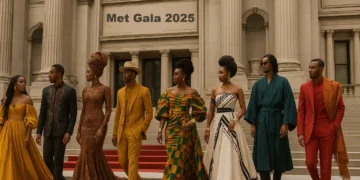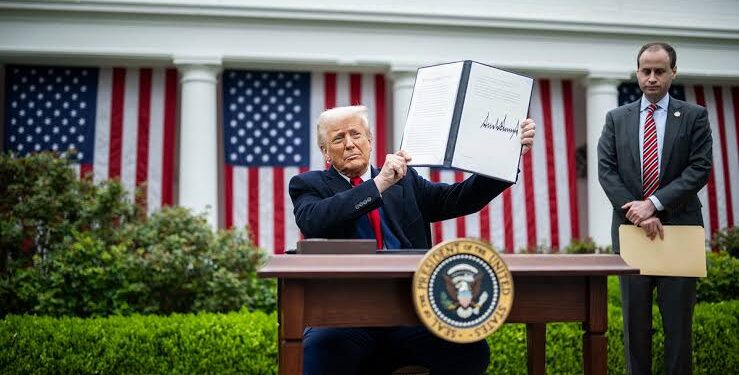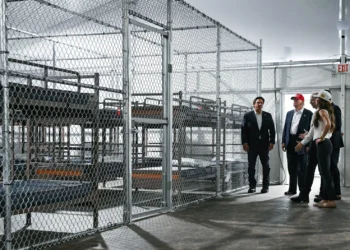The Supreme Court has heard oral arguments in a landmark case that challenges the traditional interpretation of the 14th Amendment, specifically the clause governing birthright citizenship. The case centers around an executive order issued by former President Trump aiming to end birthright citizenship for children born to non-citizen parents.
Lower courts have previously blocked this executive order, issuing nationwide injunctions that have prevented its enforcement. During the oral arguments, justices expressed skepticism regarding the legitimacy of these nationwide injunctions, raising questions about the Supreme Court’s role in this matter.

The outcome of this case could have significant implications for the interpretation of the 14th Amendment and the principle of birthright citizenship in the United States.
Key Takeaways
- The Supreme Court is hearing a landmark case that challenges the traditional interpretation of birthright citizenship.
- The case revolves around Trump’s executive order aiming to end birthright citizenship for certain individuals.
- Lower courts have blocked the executive order, issuing nationwide injunctions.
- The justices have expressed skepticism regarding these nationwide injunctions.
- The case’s outcome could redefine the 14th Amendment and impact birthright citizenship in the U.S.
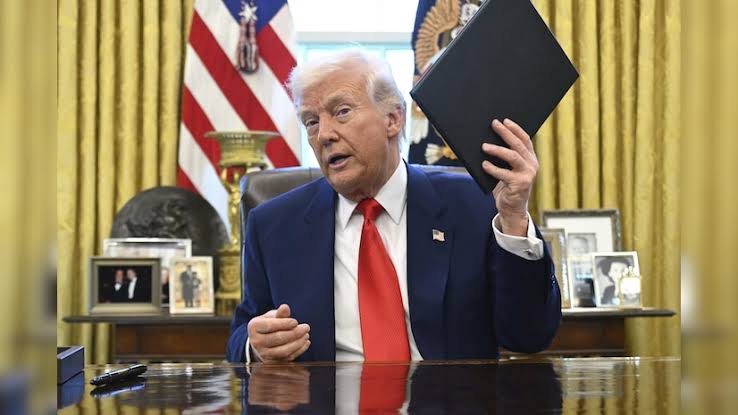
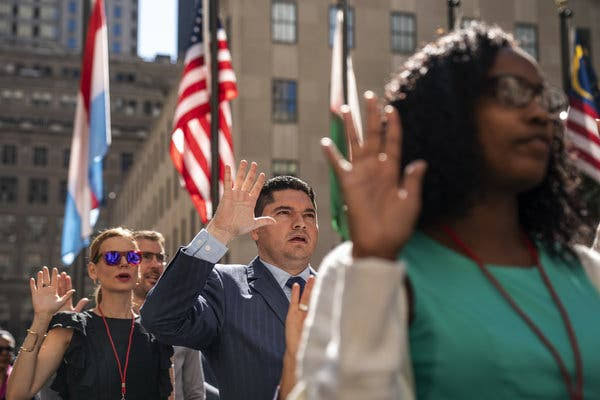
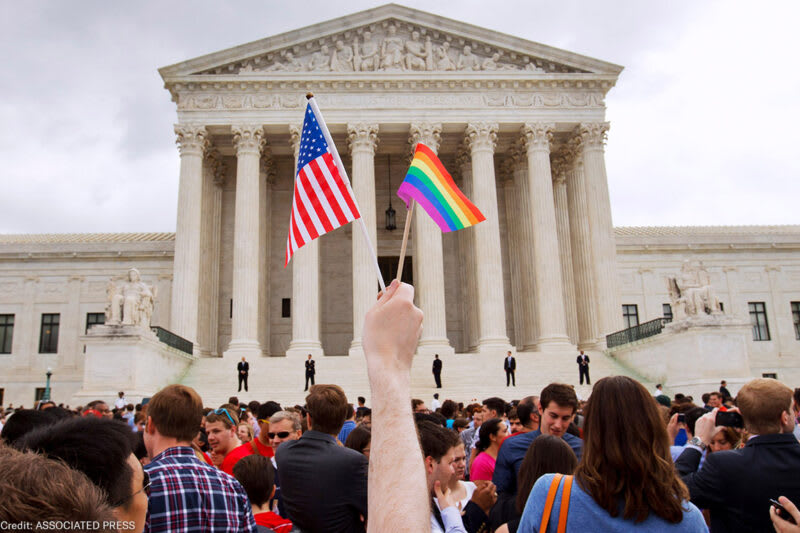
The Constitutional Foundation of Birthright Citizenship
The 14th Amendment to the U.S. Constitution is the foundation of birthright citizenship in the United States. This amendment, ratified in 1868, has been interpreted to grant citizenship to anyone born within the country’s borders, regardless of their parents’ citizenship status.
The 14th Amendment’s Citizenship Clause
The Citizenship Clause states, “All persons born or naturalized in the United States, and subject to the jurisdiction thereof, are citizens of the United States and of the State wherein they reside.” This clause has been the subject of much debate and legal scrutiny, particularly in recent years.
Historical Context and Original Intent
Understanding the historical context in which the 14th Amendment was drafted is crucial. The amendment was passed during the Post-Civil War Reconstruction Era, a period aimed at redefining the nation and ensuring the rights of formerly enslaved individuals.
Post-Civil War Reconstruction Era
During this era, the primary goal was to establish citizenship and equal rights for all individuals born in the United States. The 14th Amendment was a significant step towards achieving this goal, as it enshrined the principle of birthright citizenship into the Constitution.
United States v. Wong Kim Ark Precedent
A landmark Supreme Court case that further clarified the scope of birthright citizenship was United States v. Wong Kim Ark (1898). The court ruled that a child born in the United States to Chinese citizen parents was a U.S. citizen, establishing a critical precedent for future cases.
The constitutional foundation of birthright citizenship is thus rooted in both the 14th Amendment and significant legal precedents like Wong Kim Ark. These elements together form the basis of the ongoing legal and political discussions surrounding birthright citizenship.
Trump’s Executive Order Challenging Birthright Citizenship
In a move that sparked widespread debate, President Trump issued an executive order aimed at redefining birthright citizenship. This order has been a focal point of controversy, raising questions about the legal justification behind it and the immediate legal challenges it faced.

Key Provisions of the Executive Order
The executive order aimed to limit birthright citizenship to children born to lawful permanent residents or those with legal status in the United States. This provision marked a significant shift from the traditional interpretation of the 14th Amendment, which has long been understood to grant citizenship to anyone born on U.S. soil, regardless of their parents’ immigration status.
The order’s key provisions can be summarized as follows:
| Provision | Description | Impact |
|---|---|---|
| Limiting Birthright Citizenship | Restrict citizenship to children of lawful permanent residents | Potential reduction in citizenship grants |
| Legal Status Requirement | Require parents to have legal status for citizenship eligibility | Exclusion of children born to undocumented immigrants |
Legal Justification Presented by the Administration
The Trump administration justified the executive order by arguing that the current interpretation of birthright citizenship is overly broad and contrary to the original intent of the 14th Amendment. They claimed that the amendment was not meant to grant automatic citizenship to children born to non-citizens.

Immediate Legal Challenges
The executive order faced immediate legal challenges from various groups, including civil rights organizations and immigration advocacy groups. These challenges argued that the order was unconstitutional and exceeded the President’s authority.
The courts quickly responded by issuing nationwide injunctions to block the implementation of the order, citing concerns over its legality and potential harm to affected individuals.
Lower Court Rulings and Path to the Supreme Court
As Trump’s executive order on birthright citizenship faced challenges in lower courts, the case eventually made its way to the Supreme Court. The lower court rulings played a significant role in shaping the legal landscape surrounding the executive order.
Nationwide Injunctions Blocking Implementation
The implementation of Trump’s executive order was immediately met with legal challenges, resulting in nationwide injunctions that blocked its enforcement. These injunctions were issued by lower courts in response to lawsuits filed by various groups opposing the order.
The injunctions effectively halted the executive order’s implementation, pending further legal review. This legal maneuvering set the stage for the subsequent circuit court decisions.
Circuit Court Decisions
Circuit courts reviewed the lower court decisions and the nationwide injunctions, with some courts upholding the injunctions while others overturned them. The circuit court decisions highlighted the legal complexities and divisions surrounding Trump’s executive order.
Supreme Court’s Decision to Grant Certiorari
The Supreme Court ultimately decided to grant certiorari, agreeing to review the case. This decision was significant, as it brought the legal challenge to Trump’s executive order to the highest court in the land.
The Supreme Court’s review will provide a definitive ruling on the legality of Trump’s policy, potentially setting a significant legal precedent regarding birthright citizenship.
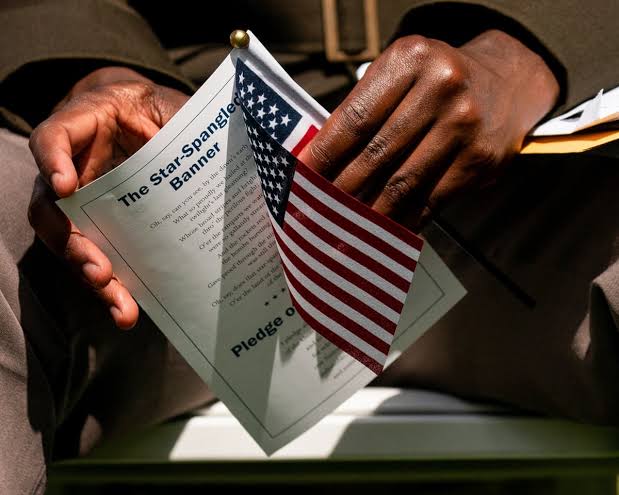
Inside the Supreme Court: Oral Arguments on Birthright Citizenship
As the Supreme Court heard oral arguments in the landmark birthright citizenship case, the justices’ questions highlighted the legal intricacies involved. The case, which centers on the interpretation of the 14th Amendment, has significant implications for the citizenship status of children born to undocumented immigrants.

John Sauer’s Arguments for the Trump Administration
John Sauer, representing the Trump administration, argued that the current interpretation of the 14th Amendment’s Citizenship Clause is overly broad. He contended that the clause was not intended to grant citizenship to children born to individuals who are not subject to the jurisdiction of the United States. Sauer’s argument focused on the historical context and original intent behind the amendment.
Key points from Sauer’s argument included:
- The historical context of the 14th Amendment and its relevance to modern immigration policies.
- The need for a more nuanced interpretation of “subject to the jurisdiction thereof.”
Jeremy Feigenbaum’s Defense of the 14th Amendment Interpretation
In response, Jeremy Feigenbaum, representing the plaintiffs, defended the traditional interpretation of the 14th Amendment. He argued that the Citizenship Clause was designed to ensure that birthright citizenship is granted to individuals born within the United States, regardless of their parents’ immigration status. Feigenbaum emphasized the importance of precedent and the potential consequences of redefining citizenship.
Critical aspects of Feigenbaum’s defense included:
- The significance of historical precedent in interpreting the 14th Amendment.
- The potential implications of altering the current understanding of birthright citizenship.
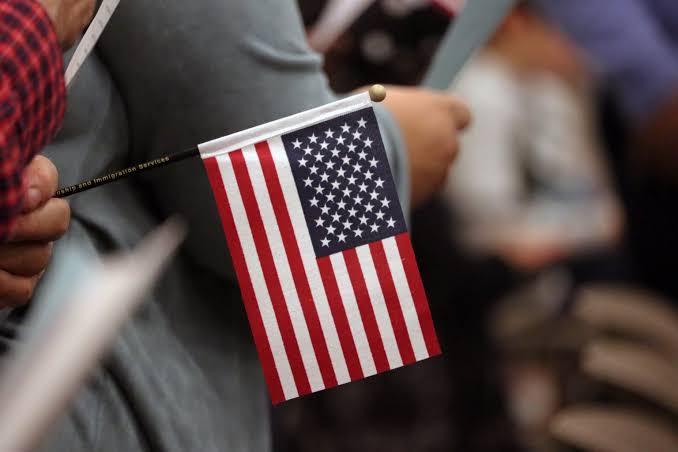
Key Questions from the Justices
The justices posed a range of questions during the oral arguments, reflecting their deep engagement with the complexities of the case. The questioning revealed a divide between the conservative and liberal justices.
Conservative Justices’ Focus on Nationwide Injunctions
The conservative justices focused on the issue of nationwide injunctions, questioning the authority of lower courts to issue such broad rulings. John Sauer’s responses highlighted the administration’s concerns about judicial overreach.
Liberal Justices’ Defense of Precedent
In contrast, the liberal justices defended the traditional interpretation of the 14th Amendment, emphasizing the importance of precedent and the potential consequences of altering established legal interpretations. Jeremy Feigenbaum’s arguments resonated with their concerns about the implications of redefining birthright citizenship.
The oral arguments demonstrated the complexity of the issue and the challenging decisions facing the Supreme Court. As the Court deliberates, the nation awaits a ruling that will have far-reaching implications for birthright citizenship.
Justice Elena Kagan’s Critical Examination of Trump’s Position
During the landmark Supreme Court case, Justice Elena Kagan posed critical questions regarding the legal foundation of Trump’s executive order on birthright citizenship. Her inquiry delved into the very fabric of the 14th Amendment’s Citizenship Clause, challenging the administration’s rationale.
Questioning the Legal Basis for Redefining Citizenship
Justice Elena Kagan’s line of questioning centered on the legal basis for redefining citizenship. She probed the administration’s argument, seeking clarity on how the proposed changes aligned with constitutional principles and historical precedent.
Historical Precedent Citations
Kagan referenced historical precedent to underscore the long-standing interpretation of birthright citizenship. By citing past court decisions and legislative history, she highlighted the potential ramifications of deviating from established norms.
Implications of Overturning Established Interpretation
The Justice also explored the implications of overturning the traditional understanding of birthright citizenship. Kagan’s questioning suggested that such a move could have far-reaching consequences, potentially affecting not only the citizenship status of individuals but also the broader social fabric.
Through her rigorous examination, Justice Elena Kagan brought to the forefront the complexities and potential consequences of the Trump administration’s efforts to redefine birthright citizenship. Her inquiries underscored the need for a careful and considered approach to such a significant issue.
The Conservative Majority’s Concerns About Judicial Overreach
During the recent oral arguments, the conservative majority on the Supreme Court voiced apprehensions about the potential for judicial overreach in cases involving birthright citizenship. This concern was primarily directed towards the use of nationwide injunctions by lower courts, which the conservative justices believe may overstep judicial authority.
Skepticism Toward Nationwide Injunctions
The conservative justices expressed skepticism regarding the broad application of nationwide injunctions, questioning whether such measures are within the purview of lower court authority. Justice Neil Gorsuch highlighted the potential for abuse, suggesting that nationwide injunctions could lead to judicial overreach.
The use of nationwide injunctions has become a contentious issue, with proponents arguing that they are necessary to prevent inconsistent rulings across different jurisdictions. However, the conservative majority on the court appears to be leaning towards a more limited interpretation of this judicial tool.
Questions About Lower Court Authority
The conservative justices also raised questions about the authority of lower courts to issue nationwide injunctions. They pointed out that such broad injunctions could potentially infringe upon the jurisdiction of other courts and create legal inconsistencies.
| Issue | Conservative Justices’ Concerns | Potential Impact |
|---|---|---|
| Nationwide Injunctions | Skepticism about judicial overreach | Limiting the use of broad injunctions |
| Lower Court Authority | Questions about jurisdictional overstepping | Narrowing the scope of lower court rulings |
| Judicial Precedent | Concerns about setting new legal precedents | Potential for future legal challenges |
Potential Narrowing of Injunction Powers
The discussions during the oral arguments suggest that the conservative majority may be inclined to limit the powers of lower courts in issuing nationwide injunctions. This could have significant implications for future cases, potentially narrowing the scope of judicial intervention in matters related to birthright citizenship and other contentious issues.
As the Supreme Court deliberates on this landmark case, the conservative majority’s concerns about judicial overreach will likely play a crucial role in shaping the court’s decision. The outcome could have far-reaching consequences for the interpretation of the 14th Amendment and the principle of birthright citizenship.

Potential Outcomes and Their Far-Reaching Implications
The upcoming Supreme Court verdict on birthright citizenship could redefine the constitutional landscape of American citizenship. The decision is anticipated to have significant implications for the interpretation of the 14th Amendment and could potentially reshape the country’s immigration policies.
Upholding Traditional Birthright Citizenship
If the Supreme Court upholds traditional birthright citizenship, it would reaffirm the long-standing interpretation of the 14th Amendment. This outcome would mean that children born to undocumented immigrants within the United States would continue to be granted citizenship. This decision would be seen as a significant victory for immigrant rights advocates, who argue that birthright citizenship is essential for ensuring equality and justice for all individuals born in the U.S.
Limiting Birthright Citizenship for Children of Undocumented Immigrants
A decision to limit birthright citizenship for children of undocumented immigrants would mark a substantial shift in the Court’s interpretation of the 14th Amendment. This outcome could lead to a significant increase in the number of stateless individuals within the U.S. and potentially create a constitutional crisis. The implications of such a ruling would be far-reaching, affecting not only immigration policies but also the social fabric of the nation.
Narrowing the Scope of Nationwide Injunctions
The Supreme Court may also choose to narrow the scope of nationwide injunctions, which could have profound implications for presidential authority and future immigration policies.
Impact on Presidential Authority
Narrowing the scope of nationwide injunctions could limit the executive branch’s ability to implement policies through executive orders. This could lead to increased judicial oversight of executive actions and potentially alter the balance of power between the branches of government.
Consequences for Future Immigration Policies
The consequences for future immigration policies could be significant, as a more restricted use of nationwide injunctions might lead to more fragmented and inconsistent immigration enforcement across different jurisdictions.
This, in turn, could result in increased legal challenges and uncertainty for immigrants and policymakers alike.
Timing Strategy and Political Calculations
As the Supreme Court prepares to rule on birthright citizenship, the timing strategy becomes crucial. The decision’s timing may be influenced by various factors, including the upcoming 2024 election.
Comparison to Trump’s Immunity Case Delays
The Supreme Court’s handling of the birthright citizenship case draws comparisons to its management of Trump’s immunity case, where delays were a significant aspect. In both cases, the Court’s timing strategy is under scrutiny, with implications for the political landscape.
Potential Impact on the 2024 Election
The 2024 election looms large as a potential factor in the Supreme Court’s decision-making timeline. The justices may consider how their ruling will affect the electoral landscape, potentially influencing their timing strategy.
Strategic Considerations for Both Political Parties
Both political parties are likely to have strategic considerations regarding the timing of the Supreme Court’s decision. The ruling’s impact on voter sentiment and campaign strategies will be significant, making the Court’s political calculations a subject of intense interest.
The outcome of this case will have far-reaching implications, not just for the individuals directly involved but for the broader political landscape. As such, the timing strategy and political calculations surrounding the Supreme Court’s decision are of paramount importance.
Conclusion: The Future of American Citizenship at a Crossroads
The Supreme Court’s decision on birthright citizenship marks a pivotal moment in the future of American citizenship, placing the country’s history and identity at a crossroads. As the highest court in the land weighs the constitutional implications of the 14th Amendment, the outcome will have far-reaching consequences for the nation’s social fabric and legal landscape.
The Supreme Court decision will determine whether the traditional interpretation of birthright citizenship is upheld or redefined, affecting the lives of many individuals and families. The court’s ruling will not only shape the future of American citizenship but also reflect the evolving values and principles of the United States.
As the nation awaits the Supreme Court’s verdict, it is clear that the decision will be a significant milestone in the ongoing debate about citizenship, identity, and belonging in America. The future of American citizenship hangs in the balance, and the Supreme Court’s decision will ultimately determine the path forward.
FAQ
What is birthright citizenship?
Birthright citizenship is the principle that individuals born within a country’s territory are automatically granted citizenship, regardless of their parents’ immigration status, as guaranteed by the 14th Amendment to the US Constitution.
What is the significance of the Supreme Court’s decision in United States v. Wong Kim Ark?
The Supreme Court’s decision in United States v. Wong Kim Ark established the precedent for birthright citizenship, affirming that individuals born in the United States are citizens, regardless of their parents’ nationality or immigration status.
What were the key provisions of Trump’s executive order challenging birthright citizenship?
Trump’s executive order aimed to redefine birthright citizenship by excluding children of undocumented immigrants from automatic citizenship, sparking controversy and immediate legal challenges.
What was the outcome of the lower court rulings on Trump’s executive order?
The lower courts issued nationwide injunctions blocking the implementation of Trump’s executive order, which were later reviewed by the Supreme Court.
What were the main arguments presented during the Supreme Court oral arguments?
John Sauer argued for the Trump administration, while Jeremy Feigenbaum defended the traditional interpretation of the 14th Amendment, with the justices posing key questions on the matter.
What were Justice Elena Kagan’s concerns regarding Trump’s position on birthright citizenship?
Justice Elena Kagan questioned the legal basis for redefining citizenship and cited historical precedent, highlighting the implications of overturning the established interpretation of the 14th Amendment.
What are the potential outcomes of the Supreme Court’s decision on birthright citizenship?
The Supreme Court may uphold traditional birthright citizenship, limit it for children of undocumented immigrants, or narrow the scope of nationwide injunctions, with far-reaching implications for presidential authority and future immigration policies.
How might the Supreme Court’s decision impact the 2024 election?
The timing and outcome of the Supreme Court’s decision may have significant implications for the 2024 election, with potential strategic considerations for both political parties.
What is the current status of birthright citizenship in the United States?
The current status of birthright citizenship remains uncertain, pending the Supreme Court’s decision, which will determine the future of American citizenship.
What are the potential implications of the Supreme Court’s decision on future immigration policies?
The Supreme Court’s decision may have far-reaching implications for future immigration policies, potentially influencing presidential authority and the treatment of undocumented immigrants.






























